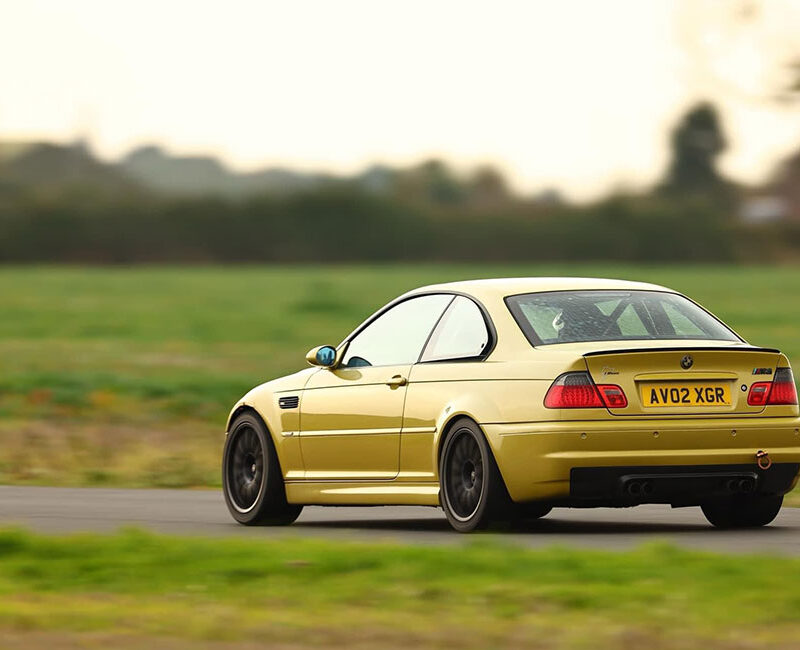Choosing the Right Base Car for Your Track Project: A UK Perspective
Embarking on the journey of building a track car is an exciting venture for any motorsport enthusiast. One of the most critical decisions in this process is choosing the right base car. Your choice will significantly influence not only your initial investment but also your ongoing costs and overall track experience. This extensive guide, tailored for the UK context, will help you navigate the crucial factors in selecting an ideal vehicle for your track project.
Understanding Your Goals
Before diving into the vast pool of potential base cars, it’s important to clarify your objectives:
- Type of Racing: Are you aiming for time trials, circuit racing, or just track day fun? Different racing types might require different base cars.
- Skill Level: If you’re a beginner, you might want a more forgiving and easy-to-handle car.
- Budget: Consider both the purchase price and the cost of potential modifications.
- Long-term Plans: Think about whether you plan to compete or simply enjoy track days.
Popular Base Car Choices in the UK
- Mazda MX-5: Renowned for its affordability, rear-wheel-drive layout, and excellent handling. It’s a popular choice for beginners and offers a vast aftermarket for modifications.
- BMW 3 Series (E36/E46): These BMW models strike a balance between performance and affordability. They offer a robust platform for tuning and are known for their straight-six engines.
- Honda Civic (Type R models preferred): A favourite in the front-wheel-drive category, known for reliability and the availability of performance parts.
- Ford Fiesta ST: A great entry-level option, particularly for those looking for a smaller, nimble car with a strong tuning community.
- Porsche Boxster: For those with a higher budget, the Boxster provides an excellent mid-engine layout and superb handling.
- Caterham 7 or Lotus Elise: These are more specialised choices, offering lightweight, high-performance bases but at higher costs.
Key Factors to Consider
- Weight: Lighter cars generally offer better handling and are easier on brakes and tyres. This can be a crucial factor in a track car.
- Drivetrain: Your preference between front-wheel drive, rear-wheel drive, or all-wheel drive will influence your car choice. Each has its own handling characteristics and learning curve.
- Aftermarket Support: Consider the availability of spare parts and aftermarket upgrades. A car with abundant and affordable parts can significantly reduce your running costs.
- Reliability: Research common issues and reliability of the models you’re considering. A more reliable base car means more track time and less downtime for repairs.
- Resale Value: Some cars hold their value better, even after being converted to track cars. This might be important if you plan to sell the car in the future.
Practical Considerations
- Insurance: Ensure you can insure the car for its intended use, especially if it’s heavily modified.
- Storage and Transportation: Consider where you’ll store the car and how you’ll transport it to and from the track.
- Legalities: If the car will also be road-legal, it must meet all MOT requirements.
FAQs for Choosing a Base Car for Track Use
Q: Can any car be turned into a track car? A: Technically, yes, but some cars are better suited due to their weight, handling, and availability of performance parts.
Q: Is it better to buy a car already modified for track use? A: Buying a pre-modified car can save time and potentially money, but ensure the modifications are of high quality and suit your needs.
Q: How important is power in a track day car? A: While power is important, handling and driver skill are often more crucial on a track.
Q: Should I buy a car that is still under warranty? A: Be aware that modifications can void factory warranties, so this might be less of a consideration for a track-focused car.
Q: Are older cars a good choice for track days? A: Older cars can be a cost-effective option, but be prepared for potentially higher maintenance and upgrade costs.
In summary, choosing the right base car for your track project in the UK involves a balance of performance potential, reliability, cost, and personal preferences. Whether you opt for a nimble hatchback, a classic rear-wheel-drive coupe, or a more exotic platform, the key is to select a car that will bring you joy both on the track and during the build process. Remember, the best track day car is the one that aligns with your goals and brings a smile to your face every time you take it out on the circuit.

